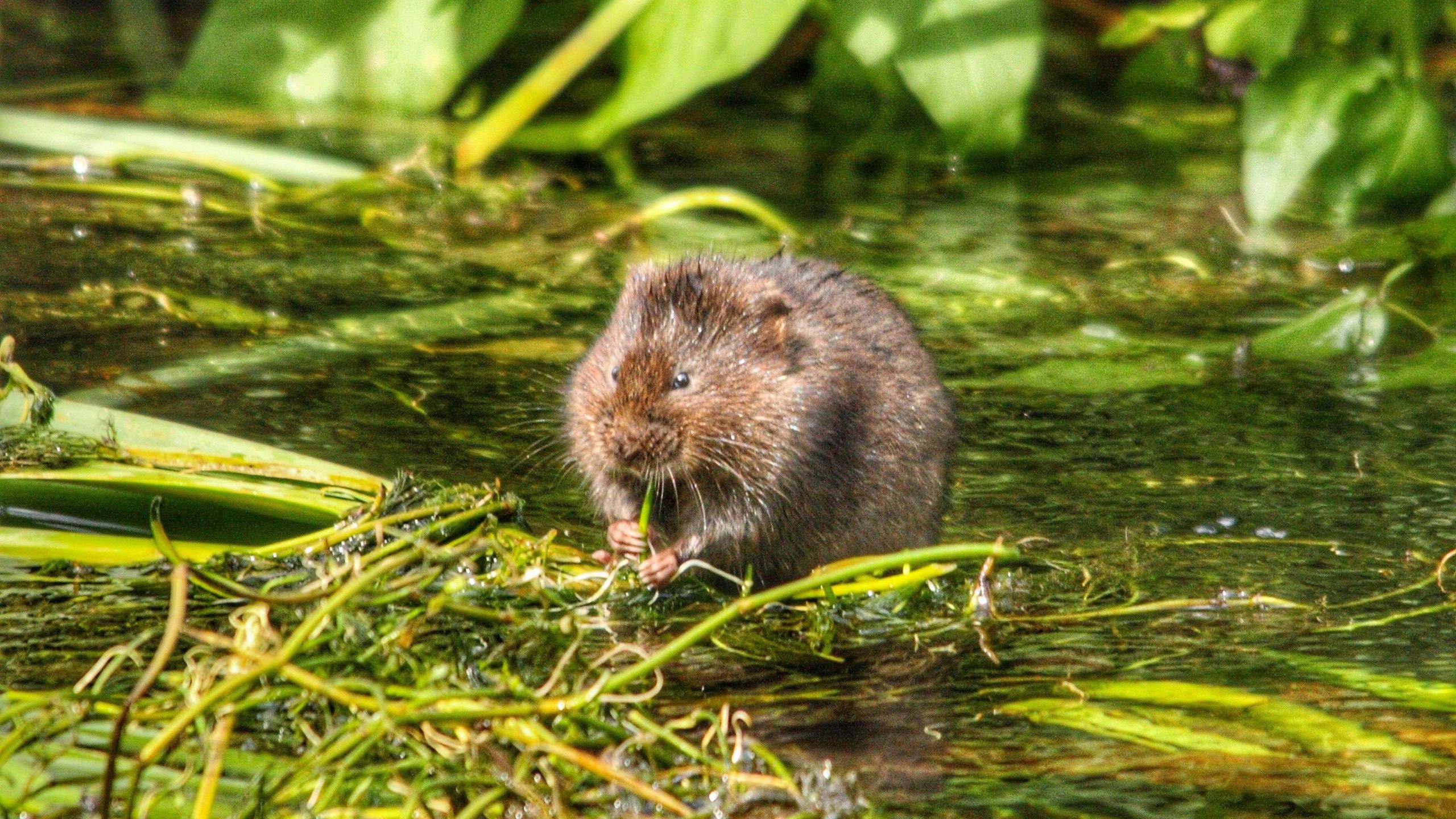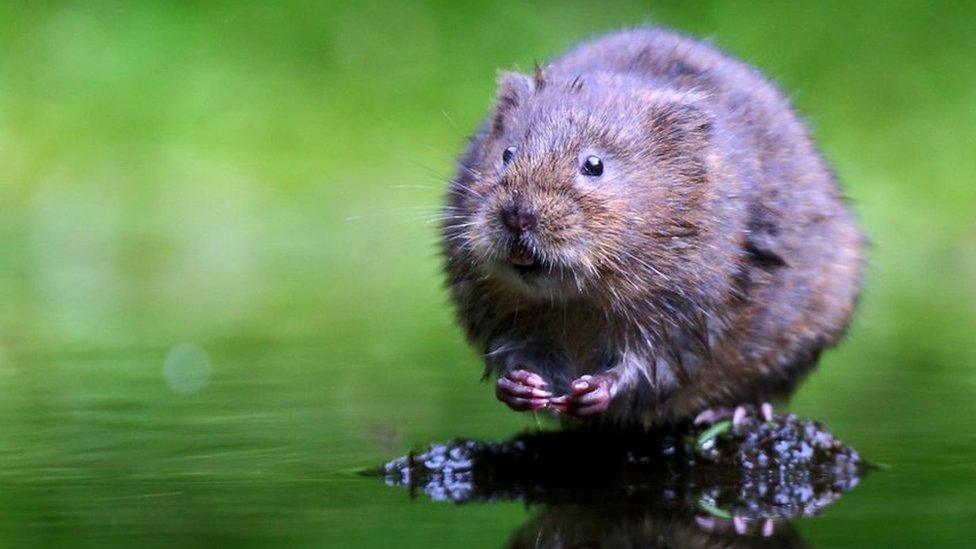Endangered water vole makes home in city park

The water vole, which is on the red list of threatened species, has appeared in Hull Road Park in York for the first time
- Published
Water voles - a species that has declined by 90% in the past 30 years - have made their home in a park in York, it has been confirmed.
The creatures, which are on the red list of threatened species, have recently appeared in Hull Road Park in York for the first time.
They have been found living along the vegetated banks of Osbaldwick Beck which runs through the park, following a seven-year project to improve the wildlife habitat in the area.
Gail Hammond, environment programme manager at the Environment Agency, said: “There is still much to be done but the recent sightings in York can give us hope that when people work together for wildlife that species can recover.”
Water voles are Britain’s largest vole species, with a rounded face, blunt nose, small ears and dark brown or almost black fur.
They can often be identified from the distinctive plop sound they make when they dive into the water.
Their appearance in Osbaldwick Beck has been hailed as a success for the York Urban Becks project, which started in 2017 and saw the Environment Agency work with partners to restore wildlife habitat in the city.
The organisation focused on working with environmental charity St Nicks to encourage water voles along Tang Hall and Osbaldwick becks.
As a result, voles have now appeared all along the beck, including at Hull Road Park, which lies close to an urban area.
'Ecosystem engineers'
Jonathan Dent, from St Nicks in York, said: “We've had some very clear sightings over the last few weeks and identified field signs during in-stream surveys that 100% confirm their presence."
It is now hoped the success of water vole introduction in the area will lead to even more improved biodiversity along York's waterways.
“Water voles are fondly referred to as ecosystem engineers, their burrowing and feeding activity supports biodiversity, creating opportunities for wetland plants and other animals to thrive, so... we should see even more diversity developing within the beck habitat," Mr Dent said.
Councillor Jenny Kent, from City of York Council, said: “Water voles in York is great news – for them and for York’s environment.
“It’s a real tribute to the hard work of all our partners and volunteers in this scheme, which is hugely valued.”
Related internet links
- Published23 May 2024

- Published15 March 2024
